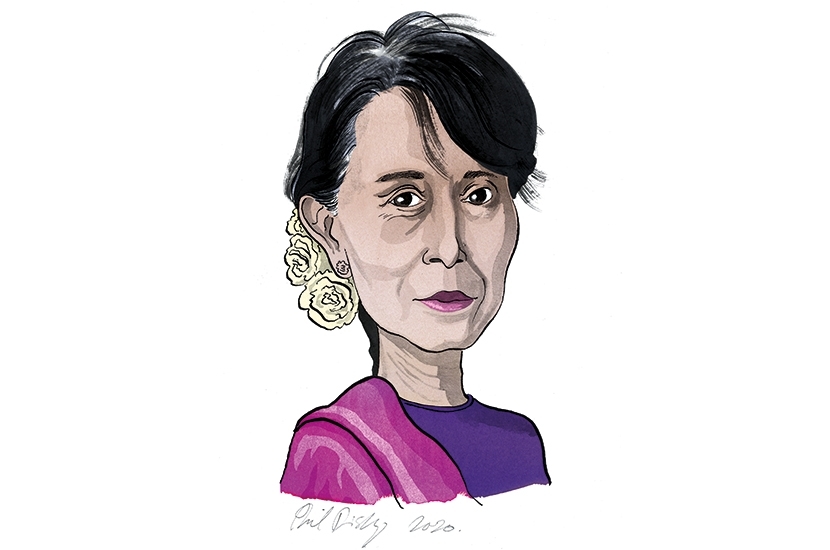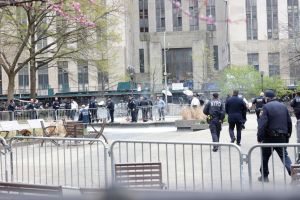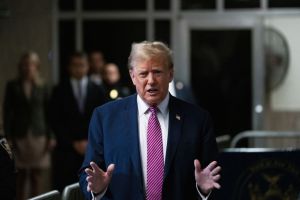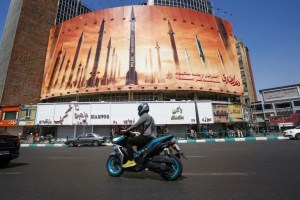In 1962 the Myanmar military staged a coup d’état. Their iron-fisted rule lasted 49 years. On Monday, after a nine-year interlude when they remained covertly in control, they have officially and overtly retaken power. Min Aung Hlaing, who has been commander-in-chief of the armed forces since 2011, is now directly at the helm of a renewed dictatorship.
Prime Minister Aung San Suu Kyi, President Win Myint and numerous others of the ruling National League for Democracy party are under arrest. The military television station announced there will be a one year state of emergency. Ostensibly fresh elections will be organized. But given their track record, the word of the power-hungry generals is untrustworthy.
The National League for Democracy party of Suu Kyi were reelected in November winning 396 out of 476 parliamentary seats. It was a referendum on her first term in office and the return even better than five years ago. The military proxy of the Union Solidarity and Development party was virtually wiped out.
The armed forces alleged fraud. The election commission rejected this. The military complained to the country’s Supreme Court and threatened to ‘take action’. Last week, a military spokesman refused to rule out an overthrow of the government and general Hlaing was quoted as saying a suspension of the country’s constitution could be ‘necessary’. But on Saturday it promised to respect the country’s constitution.
The men in uniform struck just before the first sitting of the new parliament, which was scheduled for this week and would have formalized the election results, albeit Suu Kyi was never entirely in control. The three powerful ministries of home affairs, defense and border areas (where rebels are rife) and the state bureaucracy is constitutionally in the military’s control.
In a letter apparently written in anticipation of her detention, she asked her supporters ‘not to accept’ the coup and protest against it. Some 70 percent of the electorate voted for her in the general election. In the past, the army has dealt with dissent with an iron fist. As soldiers with automatic weapons, armored vehicles and barbed wire visibly registered their presence in the main city of Yangon (formerly Rangoon) there were no immediate reports of resistance. Internet and phone services were jammed. Queues formed at cash dispensers as banks were forced to close.
The new Biden presidency has moved swiftly. Secretary of state Antony Blinken called for the release of detainees and said the US ‘stands with the people of Burma in their aspirations for democracy’.
But China, despite reportedly advising the generals against a coup, cautiously observed: ‘We have noted what has happened in Myanmar and are in the process of further understanding the situation.’ The Chinese have massive investments in Myanmar across the board. It had also reached an understanding with Suu Kyi after she was condemned by the West for her callous response to the alleged genocide of the Muslim Rohingya community by Burmese security forces. There is now less sympathy for her in the free world; but at the same time there’s no love lost for the Burmese military. The generals may have calculated, though, that China cannot afford to abandon them and lose its sway over Myanmar.
As US-based Burmese historian Thant Myint-U says Myanmar is where China meets India; and where there has been a tug-of-war between the two for influence. In the late 1980s and early 1990s New Delhi supported Suu Kyi against the military, but was compelled to reverse policy after the Burmese collaborated with Beijing to provide logistical support to separatists in India’s north-east. Monday’s statement by the Indian Ministry of External Affairs, though, seemed to echo a return to a status quo ante and an alignment with the western position. ‘We have noted the developments in Myanmar with deep concern… We believe that the rule of law and the democratic process must be upheld,’ it said.
During Myanmar’s decades of isolation, Japan quietly reaped the economic benefit. After it evolved into a semi-democracy, Japanese investments increased. Therefore, the ‘serious concerns’ expressed by the foreign minister Toshimitsu Motegi and his urging that Myanmar ‘promptly restore a democratic political system’ is unsurprising.
Singapore’s economic stakes in Myanmar are considerable as well. It predictably recorded its ‘grave concern’. ‘We hope that the situation will return to normal as soon as possible,’ a press release said. Myanmar, a predominantly Buddhist nation and a British colony until 1948, is a member of the Association of South-East Asian Nations. Others in the 10-state union were divided in their response. Cambodia, the Philippines and Thailand described developments as an internal matter. Indonesia and Malaysia sharply differed. Brunei, Laos and Vietnam were sitting on the fence.
The European Union’s President Ursula von der Leyen tweeted: ‘The legitimate civilian government must be restored… I call for the immediate & unconditional release of all those detained.’ The United Nations secretary-general António Guterres stated the developments represented ‘a serious blow to democratic reforms in Myanmar’.
Myint-U, who is a grandson of a former UN secretary-general, posted on Twitter: ‘Myanmar’s a country awash in weapons, with deep divisions across ethnic & religious lines, where millions can barely feed themselves.’ The bigger international question is: can the military get away with it?
This article was originally published on The Spectator’s UK website.


















